Seoul Is One of the Best Places to Visit in 2023 — Here's Why
Plan the perfect trip to South Korea's capital — cool cocktail bars, Michelin-starred restaurants, and hip boutiques included.
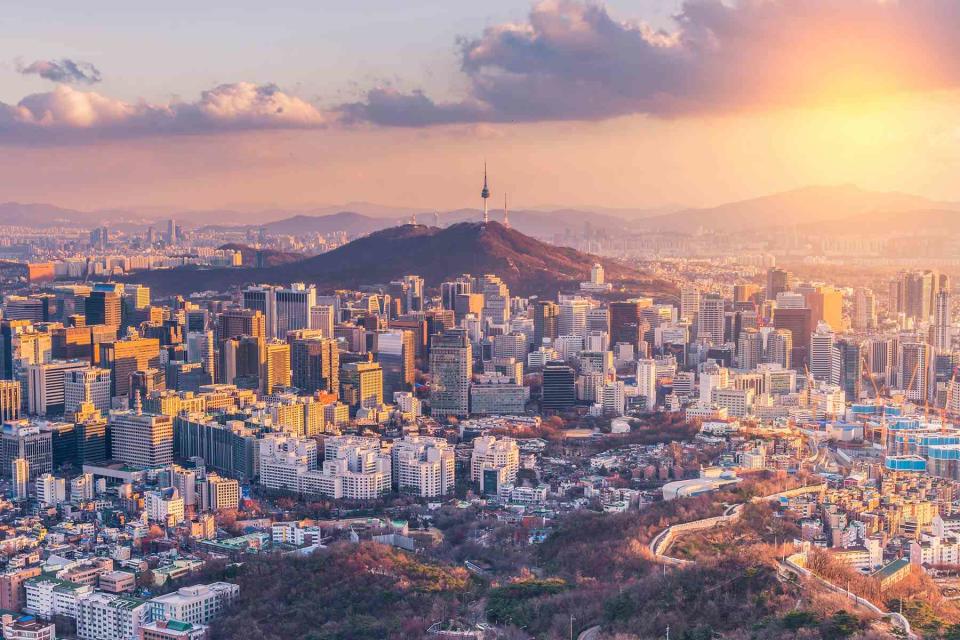
CJNattanai/Getty Images
“If you visit Seoul now, you will discover a city that feels newer, richer, and fresher than ever.”
While my friend and music producer-turned-fragrance designer Soohyang Kim of The Perfume Club has watched her hometown go through ups and downs like any other city, she wasn’t expecting it to emerge from the pandemic more compelling than before.
Neither was I. And I couldn’t have summed up my recent solo trip to South Korea’s capital — named one of the best places to visit in 2023 — any better. Over 10 days at a dizzying pace — locals embrace a ppalli ppalli (meaning quickly, quickly) lifestyle — I explored the megacity with wider eyes than usual, while discovering new and under-the-radar spots proving Seoul is much more than K-pop, barbecue, and Gangnam.
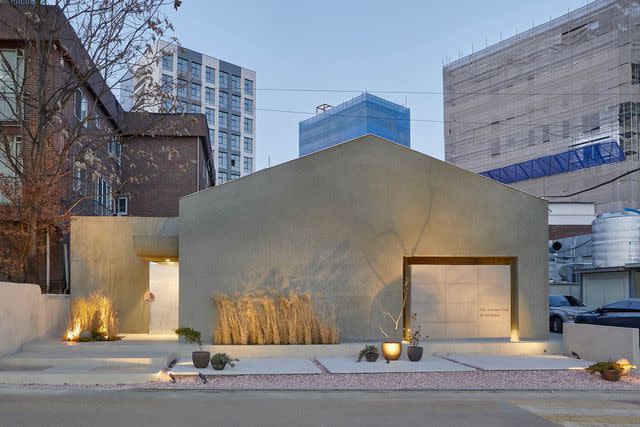
JanDee Kim/Courtesy of The Perfume Club
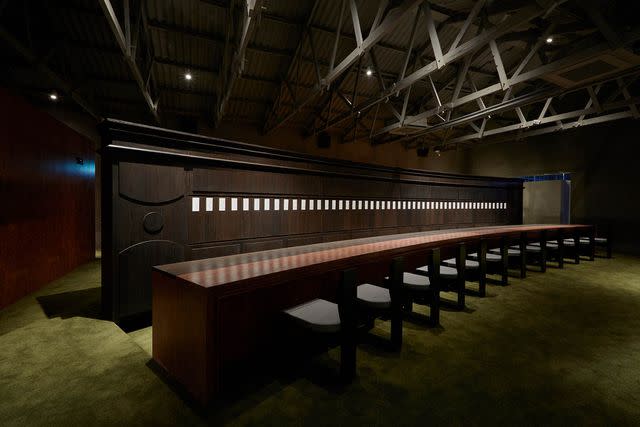
JanDee Kim/Courtesy of The Perfume Club
Few neighborhoods are more emblematic of the city’s new wave of creativity than Seongsu-dong. Flocked by Seoul’s young and stylish set, the industrial district was once home to shoe factories, but now brims with hip restaurants (Cafe Onion, Popina, and Grandmother’s Recipe are worth checking out), bars, and boutiques occupying many of the original historic buildings. Set in a former manufacturing facility of Kim’s, The Perfume Club is an experiential, design-driven space that’s equal parts atelier, retail shop, and social hub for fellow fragrance lovers. Next door is Nudake, a dessert concept by Korean eyewear company Gentle Monster specializing in provocative baked treats such as its signature Peak Cake, a ring of black squid-ink croissants you pull apart and dip into a pea-green matcha cream center. Independent creatives aren’t the only ones who’ve planted themselves here, though. In May, Dior unveiled a stunning, three-year pop-up concept combining a cafe, garden, and boutique in an open-air, greenhouse-like structure.
Though plenty of up-and-coming talent shapes Seoul’s ever-evolving arts and crafts scene, few are turning heads more than Hyung Jun Kim and Seo Seok Man of Goyang’s THR-Ceramic. Visit their studio for a full-day class to learn the significance of Joseon Dynasty pottery and paint your own keepsake in the period’s distinctive cobalt blue. And if your luggage permits, nab as many of duo’s original Naldak pieces (chickens managing the best they can in awkward situations) and Dogabis (goblins wearing exaggerated expressions that are as unsettling as they are hilarious). Both ceramic collections are rooted in indigenous mythology and folklore, and make for one-of-a-kind souvenirs.
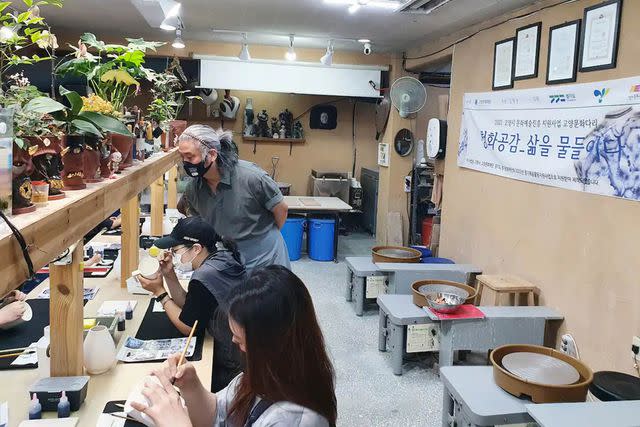
Courtesy of THR Ceramic
Department stores also remain an integral part of Korea's social fabric. They’re typically massive, multifloor buildings with each one dedicated to a different department, like food halls (almost always in the basement) or luxury goods. Opened last year, The Hyundai Seoul in Yeouido is the city’s buzziest and largest, with a minimalist, futuristic design incorporating natural elements (trees, a soaring waterfall, and floating “islands”) to bring the outdoors in and an impressive roster of international and emerging domestic brands such as Thelma and Mo-no-ha.
As for Seoul’s culinary landscape, it still beckons with a dynamic mix of everything you’d want to sink your teeth into, from affordable street foods to Michelin-starred establishments elevating traditional cuisine to new heights. Thankfully, many city stalwarts, including Woo Lae Oak — get the Pyongyang naengmyeon (cold buckwheat noodles) — Gwangjang Market, and Miro Sikdang were spared during the pandemic.
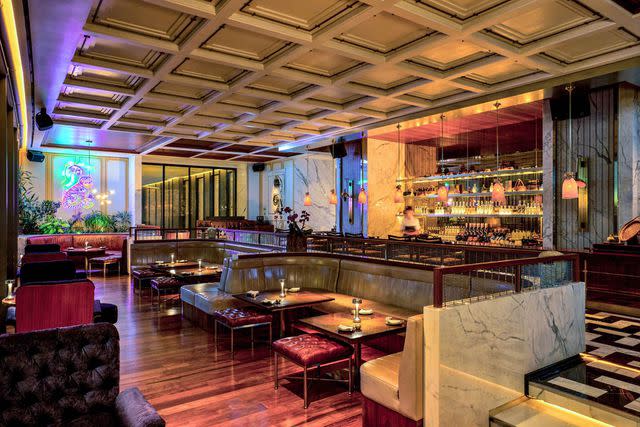
Courtesy of Four Season Seoul
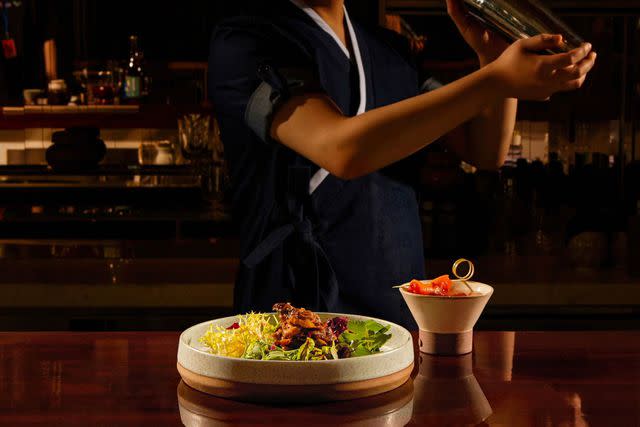
Courtesy of Four Season Seoul
A notable recent trend, however, has been an increased interest in artisanal jeontongju (traditional rice-based spirits) from independent producers reimagining the category with domestic fruit, longer fermentation periods, and whimsical packaging. One of the best spots to experience jeontongju (and much more) is Oul at the Four Seasons Hotel Seoul. A celebration of Korea’s dynamic drinking culture, the lively bar and lounge pours lesser-known drinks like bokbunja (fruit wines) alongside imaginative anju (drinking snacks) of crunchy kimchi bombs and spicy-creamy lobster tteokbokki, making it more than easy drink in Korean culture — past and present.
For more Travel & Leisure news, make sure to sign up for our newsletter!
Read the original article on Travel & Leisure.

